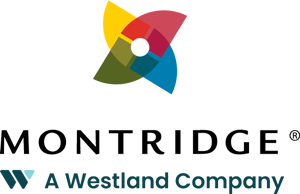Taxation of employee benefits in Canada is a complex matter and a puzzle every employer needs to solve. The rules constantly change, and staying up-to-date is a challenging task. If you’re not aware of the most recent guidelines, it can cost your company dearly.
In this article, we’ll look at what is and isn’t taxable so you can rest easy knowing your money is well-spent.
Taxable Benefit vs. Non-Taxable Benefit: The main difference
As an employer, you’re responsible for:
- Determining whether your employees’ benefits are taxable
- Calculating their value
- Making appropriate payroll deductions
- Filing an information return
List of the popular taxable benefits
Any benefit an employee receives that has monetary value can be considered taxable. This rule applies whenever the employee is the primary beneficiary of the benefit.
- Tips
- Employer-paid Life insurance, AD&D and Critical Illness premiums
- Boarding, lodging, and low-rent or rent-free housing
- Expenses from personal travel
- Personal use of a company car
- Gifts over $500 per year
- Use of a company-owned vacation property
- Gym memberships
- Employer-provided parking spaces for employees
- Reimbursements for personal cell phone expenses
List of the common non-taxable benefits
Benefits that do not count toward an employee's income are generally non-taxable.
- Subsidized meals in an onsite cafeteria
- Meals or allowance provided for working overtime (unless it’s a regular occurrence)
- Fees from personal use of the internet or a cell phone (as long as it doesn’t exceed what’s included in a basic, fixed-cost plan)
- Providing cell phones owned by the employer or reimbursing employees for service costs
- Expenses related to upgrading or maintaining employees' skills
- Professional dues that benefit the employer
- Offering access to recreational facilities for employee use if the employer is the primary beneficiary
- Non-cash gifts and awards under $500 annually
- Reasonable automobile allowance based on business usage
- Counselling services for re-employment, retirement, or health purposes
- Credit card loyalty points earned from business expenses unless converted into cash
Is Life and Disability Insurance Taxable In Canada?
Disability policies have two meanings for “taxable” and “non-taxable” – the premiums and the benefits. If the employer pays any portion of the disability premiums, the benefits at the time of claim will be considered taxable income to the employee. However, the premium payments made by the employer will not. If the policy is structured as a “non-taxable” benefit, the employee pays 100% of the premiums – but the benefit is tax-free at the time of claim.
Life, Accidental, Death & Dismemberment (AD&D), and Critical Illness premiums are considered taxable benefits when paid by the employer, as any benefits received by the employee’s beneficiaries are tax-free.
In order to maximize the benefits received while disabled, most employers will have employees pay the STD and LTD premiums via payroll deduction to ensure that any disability payments received are tax-free. Of course, this is only possible if premium costs are shared between the employer and the employee. In the case where the employer pays 100% of all group benefits premiums, it is important that the employer ensure that the LTD schedule is higher to account for the taxability of the disability benefits.
To minimize additional work on T4s at year-end, the best practice is to have the employee pay the Life Insurance, AD&D and Critical Illness premiums via payroll deduction. However, if the employer pays any portion of the premiums for these benefits, it is important to ensure that these premium amounts are recorded as a taxable benefit on the employee's T-4.
Is Home Office Set Up and Expenses Taxable in 2023?
Home office expenses reimbursed by the employer are not usually eligible for deduction unless the employee is "required" to work from home. To claim home office expenses in 2023, employees must use the detailed method and get a completed Form T2200, which must be reviewed and signed by their employer. The Canada Revenue Agency (CRA) requires employees to have a form from their employer confirming that the conditions for the deduction have been met. (The temporary flat rate method that was available for the 2020, 2021 & 2022 tax years no longer applies).
If an employee is required to work from home and their employer reimburses them for home expenses, these reimbursements are generally non-taxable. However, it is essential for employees to ensure they adhere to eligibility criteria set by the CRA to comply with tax regulations.
Are Health and Dental Benefits Premiums Taxable?
Provincial and territorial governments provide basic health coverage. To help pay for expenses beyond basic care, many firms offer private, employer-sponsored group insurance plans, usually considered non-taxable employee benefits.
As an employer, the premiums you pay for these plans count as business expenses. Outside of Quebec, the premiums you pay on your employees' behalf are not considered a taxable benefit.*
You can also offer health care spending and wellness spending accounts as employee benefits.

1. Health Spending Account (HSA)
While HSAs can be set up as stand-alone plans, they are usually added to a core plan to increase flexibility. They must be set up per the Canada Income Tax Act for health-care-related expenses reimbursed through these plans to be considered non-taxable benefits.
HSAs are simple to use and set up. HSAs provide tax-free dollars that employees can use on any eligible health expense. As an employer, you can choose an annual limit for how much employees can be reimbursed through their HSA. While they do not involve payment of monthly premiums, at the time of claim, the employer pays the cost of the claim to the maximum stipulated and an administration fee to the HSA provider whenever an employee submits a covered expense. As an employer, these plans count as business expenses.
*HSAs are a taxable benefit in Quebec.
2. Wellness Spending Account
Similar in setup and operation to HSAs, Wellness Spending Accounts (WSAs) differ in that they are taxable benefits. Still, many employers use them to attract and retain talent.
WSAs provide an allowance that, when used, is added to an employee’s taxable income. Employees pay for their lifestyle expenses personally and then make claims through their WSA provider. Employers dictate what is eligible under WSAs. Some examples of covered expenses include transit passes, childcare, personal training sessions, and financial planning advice. Eligible expenses are reimbursed using the employee’s allowance. As with the HSA account, employers pay the cost of the claim to the maximum stipulated and a fee to the provider each time an employee files a claim for reimbursement. As an employer, these plans count as business expenses.

Are Pension Plans or Group Registered Retirement Savings Plans (RRSP) Taxable in Canada?
Do you contribute to an employee’s RRSP? If so, those contributions are considered taxable income to the employee. However, that same employer contribution to a Pension Plan or Deferred Profit Sharing Plan (DPSP) is not considered a taxable benefit to your employees.
These are just a few of the most common taxable benefits in Canada. If you’re unsure whether a benefit qualifies, the Canada Revenue Agency’s guidelines can help.
Are Taxable Benefits Subject to CPP and EI Deductions?
Some benefits and allowances are subject to Canada Pension Plan (CPP) contributions, Employment Insurance (EI) premiums, the new BC Health Tax, and income tax deductions. For a full run-down, check out the CRA’s benefits chart.
Conclusion
Staying on top of the rules around taxable benefits in Canada can be daunting. But it doesn’t have to be impossible! Now that you know about the latest guidelines, you’re already on your way to success.

.jpg?height=100&name=Preet%20(1).jpg)







